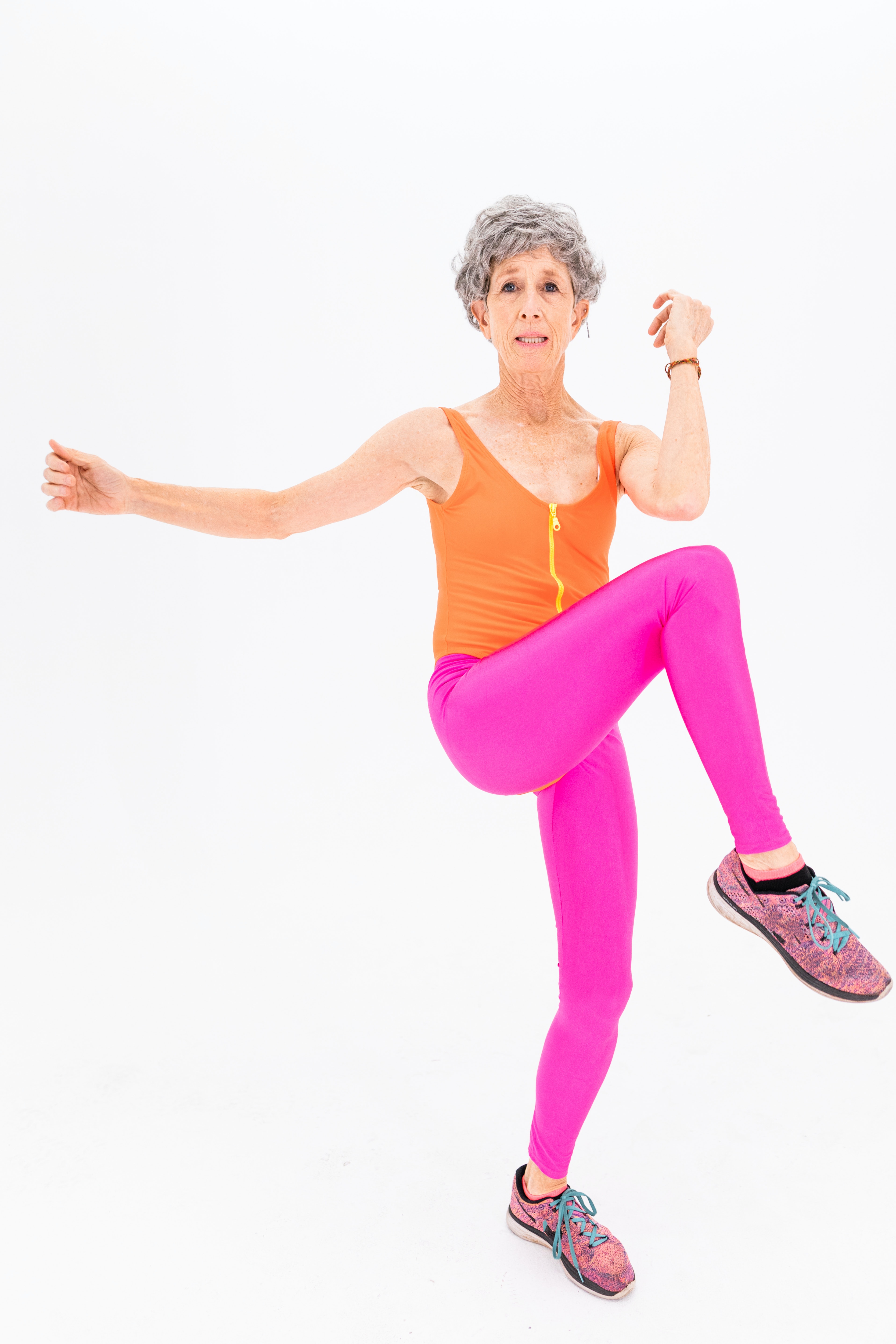How To Keep Your Brain Stronger For Longer!
Mar 15, 2022If you're wondering how to keep your brain functioning so head down the dementia trail and lose your memories, keep reading. In this blog and accompanying video, you'll learn that even though cognitive decline is real, there are things you can do to it slow down. Losing your memories doesn’t have to be inevitable.
For years I've helped Active Agers not just stay physically strong, but mentally strong too.
Aging is a journey. Your body's becoming more mature, your brain is becoming more mature. And if you don't know how to keep them healthy, you're not going to maintain quality of life and independence.
I often hear Active Agers say, "Oh, I had a senior moment".
And they act as if losing memory is something that's just supposed to happen, as if it’s just part of life. I'm here to tell you there are ways to slow it down. Listen up.

By age 60, cognitive decline can be evident because your brain has started to deteriorate. By age 80, your brain is 5% lighter than somebody in middle aged adulthood.
So healthy cognition is important. And you don't want to go down the path of dementia. What can happen? You can lose your independence, become reliant on family and friends, and may even find yourself in a retirement community that has memory assistance.
I'm going to show you one of the best ways that you can hold onto your memories.
Exercise has been shown to be the number one way to slow cognitive decline. Study after study shows this. So today, I'm going to give you an aerobic exercise.
Why an aerobic exercise?
We want get your heart rate up, we want that heart pumping hard. Why is that?
When your heart is pumping, it's sending blood through the body including, perhaps most importantly, the brain. And when your heart rate gets up, it creates new blood vessels sending more blood to the brain, which keeps the brain functioning at a higher level.
So let's start with a very basic aerobic exercise that you've probably done many times, probably starting in elementary school. The jumping jack.
Now, if you say, Adrianne, I’ve had a shoulder replacement. My rotator bothers me. I have a hip replacement, I had knee replacements, I can't jump like that. I can't get my arms above my head like that, it's totally cool. What do you do?
If you can move your lower body, take your arms to lower than the shoulders as you raise them.
If the lower body's an issue and jumping upsets the hips, the knees, the bladder, you can step it instead of doing the jump. This is a lower impact version of a jumping jack. Step one leg out at a time as your arms go up.
I want to make sure you get your heart rate up. So when you're doing a modified jack, you might be moving a little bit quicker to get your heart rate up, right?
There's something called the rate of perceived exertion. It's a scale from 1- 10. 1 being very easy, 10 being so fatigued that you can't move.
I want you somewhere between a 6 and an 8. I want you to feel that fatigue and be a little out of breath. I want you to feel like you're doing something hard, but not so hard that you can't move, where you're just going to lay down.
You want to be between a 6 and an 8. So when you're doing that, if you're doing the modification, move quickly enough to get the heart rate up.
Are you with me?
Why is this important?
Well, like I said, the blood flow to the brain.
 But remember, the brain has many different parts. So there are different modalities you want to do when you exercise. There are many things that you can do to enhance the brain, many different activities, not just aerobic activities.
But remember, the brain has many different parts. So there are different modalities you want to do when you exercise. There are many things that you can do to enhance the brain, many different activities, not just aerobic activities.
Because the brain consists of five different parts, there are different modalities, different ways of moving the body that affect different parts of the brain.
For instance, playing tennis or pickle-ball would impact the brain differently than playing something like bocce ball or golf. So these are things that you might enjoy doing that are super important and will help your brain stay active.
I know many of you like to walk and there's nothing wrong with walking. But if you're going to walk, I want that heart rate up. And I also don't want walking to be the only thing that you do. You need to challenge the brain. You need to step outside your comfort zone, so your brain has to work a little bit harder, so it's not as comfortable with everything.
If you want to learn how to defend against dementia and hold onto your memories, touch base with me and I will talk with you about the things you can do.
Stay active,
- Adrianne
Afraid to lose your independence as you age?
Take the first steps with my FREE Remain Independent Action Guide



